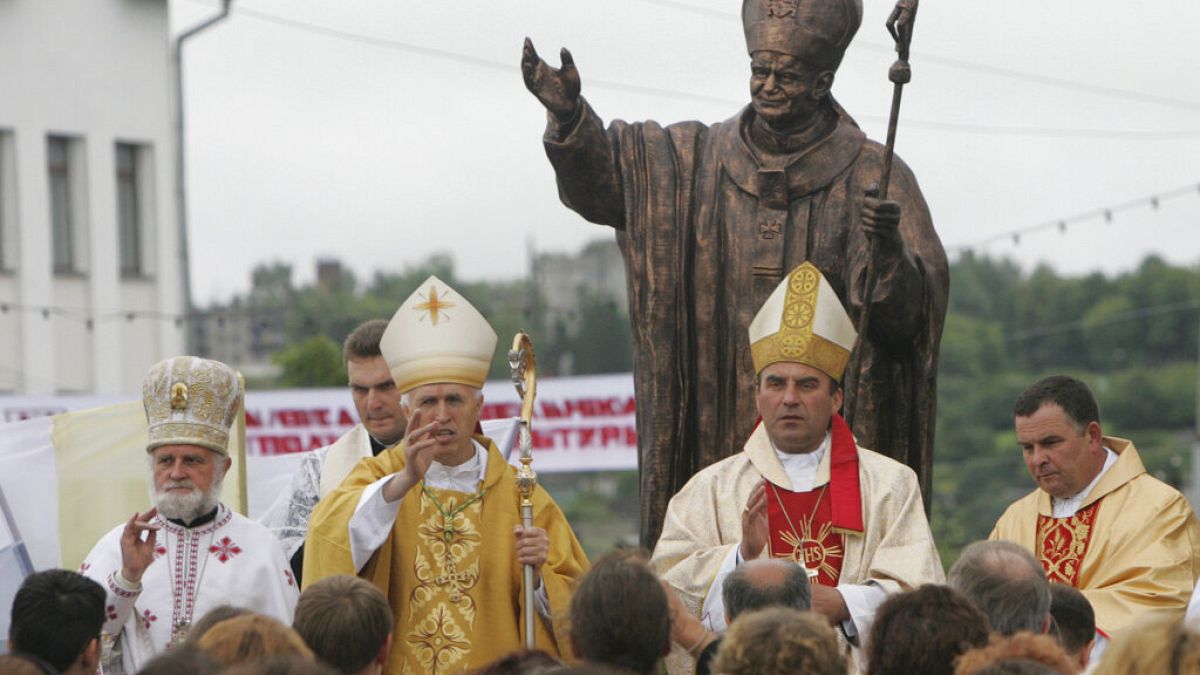The recent conviction and harsh sentencing of Catholic priest Rev. Henrykh Akalatovich in Belarus has raised concerns among human rights activists, who believe that this is a politically-driven move to silence dissent ahead of the upcoming presidential election. Akalatovich was sentenced to 11 years on charges of high treason for criticizing the government, marking the first time in Belarus’ post-Soviet era that a Catholic priest has been convicted of such charges. This action is seen as an attempt to intimidate other priests and clamp down on opposition voices in the run-up to the January election.
Despite denying the treason charges, Akalatovich has been held in custody since November 2023 and was diagnosed with cancer, undergoing surgery just before his arrest. The priest from Valozhyn in western Belarus, known for his critical sermons against the government, has been isolated from the outside world, with prison officials refusing deliveries of warm clothing and food. This case is part of a broader crackdown on dissent that has targeted clergy from various denominations, including Catholic, Orthodox, and Protestant, who have protested against the disputed 2020 election results that extended President Lukashenko’s rule.
The crackdown on dissent in Belarus has intensified in recent years, with over 65,000 people arrested and thousands beaten by police in response to the 2020 election protests. Clergy members who supported the protests and provided shelter to demonstrators at their churches have faced particular scrutiny and repression. The authorities have attempted to bring the clergy in line by summoning them for political discussions, monitoring their online activities, and censoring their sermons. Despite the Orthodox Christian majority in Belarus, Catholic and Protestant clergy have also been targeted for their activism against government actions.
President Lukashenko, a close ally of Russian President Vladimir Putin, has been in power for nearly three decades and has faced criticism for his authoritarian rule. During the 2020 protests, he chastised dissident clergy for allegedly stoking unrest and urged them to focus on their religious duties. Lukashenko’s regime has been accused of human rights abuses, including imprisoning political activists and dissenting voices, in an effort to maintain control over the country. His ties to Putin have also raised concerns, as Belarus has allowed Russia to use its territory for military operations and has deployed Russian troops and nuclear weapons in the country.
The case of Rev. Akalatovich highlights the challenges faced by clergy and activists in Belarus who stand up against the government’s authoritarian practices. Human rights activists have called for international attention to the situation in Belarus and have urged for solidarity with those who are facing repression for their beliefs. As Belarus prepares for the upcoming presidential election, the international community will be closely watching the developments in the country and the impact of the government’s crackdown on dissent. It is crucial for global leaders to speak out against such abuses and support efforts to protect human rights and free expression in Belarus and other authoritarian regimes.











